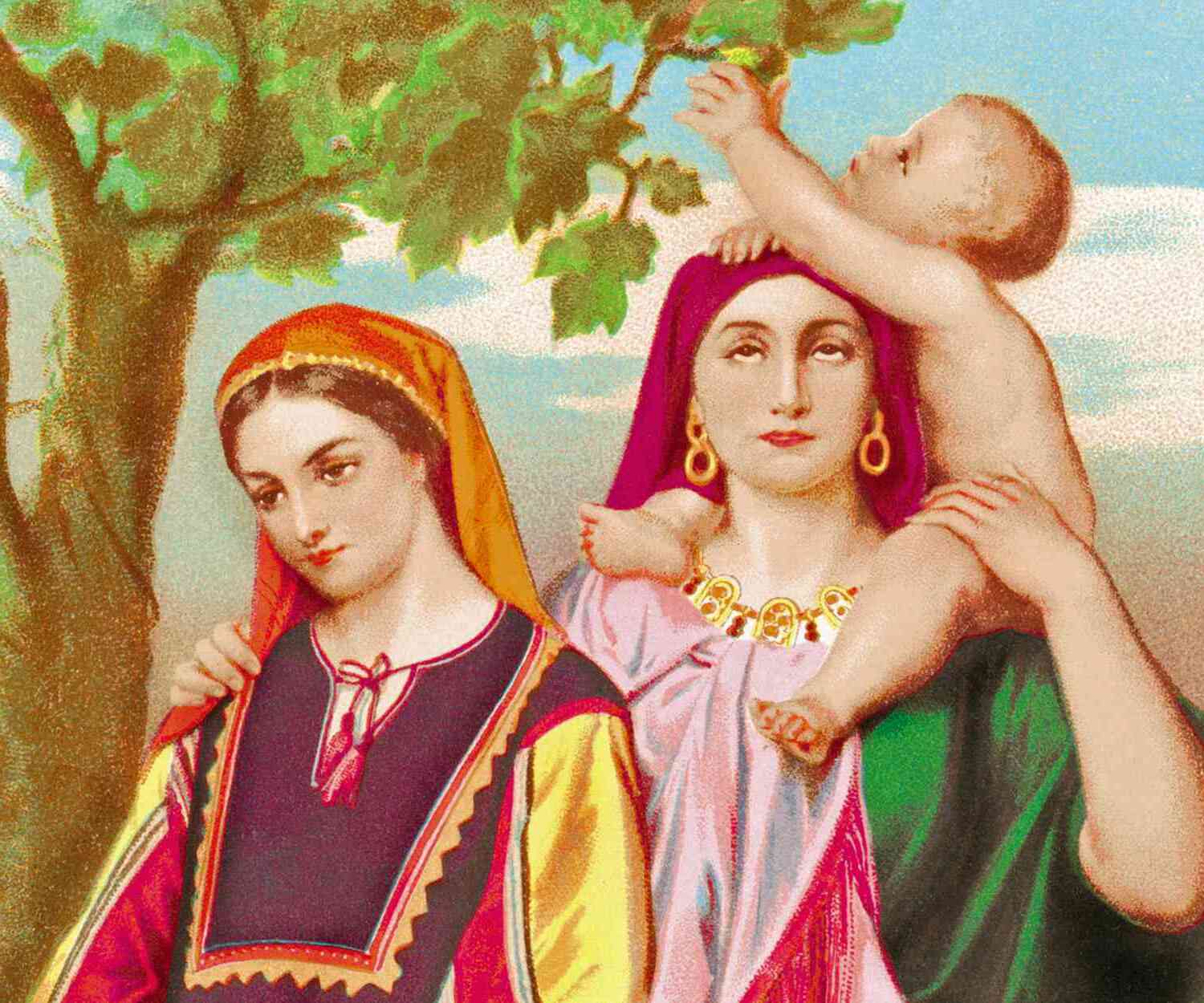
Ever wondered about the lesser-sung heroes of the Bible? Leah, often overshadowed by her sister Rachel, holds a story filled with depth, resilience, and unexpected turns. Leah from the Bible is a figure whose life lessons continue to resonate today. But what makes her so special? From her complicated marriage to Jacob to becoming the matriarch of a nation, Leah's journey is nothing short of remarkable. In this post, we'll uncover 20 amazing facts about Leah that highlight her strength, faith, and the pivotal role she played in biblical history. Ready to get to know one of the Bible's most intriguing women? Let's dive into the life of Leah and discover the legacy she left behind.
Key Takeaways:
- Leah, the first wife of Jacob, played a crucial role in the formation of the tribes of Israel, showcasing her significance in biblical history and the complexities of family dynamics.
- Despite initial challenges, Leah's story is one of strength, resilience, and spiritual depth, teaching valuable lessons on love, faith, and the transformative power of perseverance.
Who Was Leah in the Bible?
Leah, often remembered as a significant but complex figure, was the first wife of Jacob, one of the patriarchs of the Israelite nation. Her story unfolds in the Book of Genesis, where her life is depicted with themes of love, rivalry, and divine intervention. Unlike her sister Rachel, who was Jacob's preferred wife, Leah's journey was marked by her struggle for recognition and affection.
-
Leah was the elder daughter of Laban, making her a key figure in the biblical narrative that intertwines family dynamics with divine plans.
-
Despite being Jacob's first wife, Leah was not his first choice. This was due to Laban's deception, tricking Jacob into marrying Leah before Rachel, which set the stage for a lifelong rivalry between the sisters.
Leah's Contribution to the Tribes of Israel
Leah's legacy is most notably marked by her contribution to the formation of the tribes of Israel. Through her, Jacob fathered six sons, who became founders of half of the tribes of Israel, showcasing her significant role in the biblical history.
-
Her sons were Reuben, Simeon, Levi, Judah, Issachar, and Zebulun, each leading to the establishment of a tribe.
-
Leah also had a daughter named Dinah, whose story is one of the few detailed narratives about women in the Bible.
The Complexity of Leah's Relationship with Jacob
The relationship between Leah and Jacob is a poignant tale of unrequited love and divine intervention. Despite Leah's unchosen status, her faith and her relationship with God played a crucial role in her life and the broader biblical story.
-
Leah's eyes were described as "weak" or "tender" in the Bible, which some interpret as a sign of her delicate emotional state over her unloved status.
-
She named her first son Reuben, meaning "See, a son," as a way to gain Jacob's affection, highlighting her desire for recognition and love.
Leah's Spiritual Legacy
Leah's story is not just one of personal struggle but also of spiritual significance. Her faith and actions contributed to her unique legacy within the biblical narrative.
-
Despite her hardships, Leah is remembered for her strong faith and as a matriarch in Israel's history.
-
She is buried in the Cave of the Patriarchs, a significant site in Hebron, which is considered one of the most sacred places in Jewish tradition.
Leah's Impact Beyond the Bible
Leah's story has transcended biblical texts, influencing culture, literature, and religious thought throughout centuries.
-
Her life has been interpreted in various ways, often seen as a symbol of resilience and the complexity of human emotions and relationships.
-
In Jewish tradition, Leah is considered a prophetess, recognized for her insight and spiritual depth.
-
Her story has inspired countless works of art, literature, and music, reflecting her enduring impact on cultural and religious narratives.
-
Leah's narrative offers valuable lessons on the nature of love, faith, and the human condition, making her story relevant across generations.
-
Despite the initial perception of her as the less loved wife, Leah's legacy is one of strength, spiritual depth, and a pivotal role in the foundation of the Israelite nation.
-
Her story challenges readers to look beyond surface appearances and societal expectations, emphasizing the importance of inner qualities and faith.
-
Through Leah, the Bible teaches that God's plans often unfold in unexpected ways, highlighting the role of faith and perseverance in overcoming personal trials.
-
Leah's life serves as a testament to the power of prayer and the belief that God hears the cries of the unloved and the overlooked.
-
Her story is a reminder that in the biblical narrative, women played crucial roles not just as supporters but as central figures in their own right.
-
The rivalry between Leah and Rachel, while often focusing on their competition for Jacob's love, also sheds light on the complexities of sisterhood and family dynamics.
-
Leah's journey from a position of disadvantage to becoming a matriarch illustrates the transformative power of faith and resilience.
-
Ultimately, Leah's story is one of redemption, showcasing how individuals can rise above their circumstances through faith, strength, and the support of a higher power.
A Final Glimpse at Leah's Legacy
Leah's story in the Bible isn't just a tale from the past; it's a narrative that continues to inspire and teach. Through her life, we learn about resilience, the power of faith, and the complexity of human emotions. Leah's journey, marked by struggle and triumph, shows us that even in situations where we feel overlooked, our value doesn't diminish. Her legacy is a testament to the strength found in perseverance and the unexpected ways in which blessings can unfold. As we reflect on Leah's life, let's carry forward the lessons of hope and the importance of seeing beyond our immediate circumstances. Her story, rich with historical and spiritual insights, encourages us to look deeper into our own lives and the legacy we're creating.
Frequently Asked Questions
Was this page helpful?
Our commitment to delivering trustworthy and engaging content is at the heart of what we do. Each fact on our site is contributed by real users like you, bringing a wealth of diverse insights and information. To ensure the highest standards of accuracy and reliability, our dedicated editors meticulously review each submission. This process guarantees that the facts we share are not only fascinating but also credible. Trust in our commitment to quality and authenticity as you explore and learn with us.


